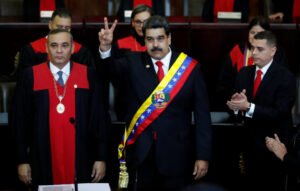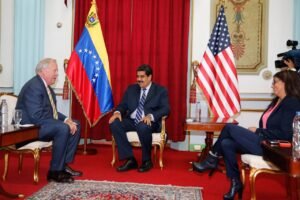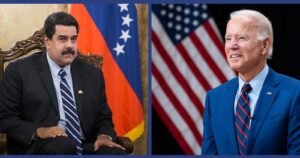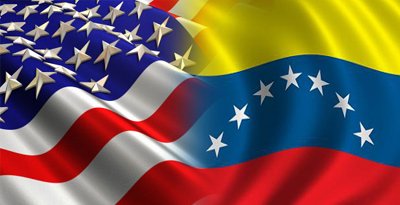
In a noteworthy development, the relationship between the United States and Venezuela has recently exhibited signs of amelioration after years of diplomatic strain. This shift in dynamics has raised inquiries regarding the contributing factors to this warming trend in US-Venezuela ties. This article undertakes the exploration of the pivotal elements behind this significant development, encompassing the removal of sanctions, the imminent electoral processes in Venezuela, endeavors in the realm of humanitarian assistance, international intermediation, and the evolving geopolitical landscape within the region.
The Easing of Sanctions
One of the principal drivers behind the recent amelioration in US-Venezuela relations lies in the abolition of punitive measures. The Biden administration undertook a resolute action by rescinding oil-related sanctions against Venezuela, which had long been a source of contention between the two nations. This decision conveyed a willingness to engage with the Maduro regime and marked a pivotal juncture in the diplomatic discourse. These sanctions, initially imposed in response to the 2018 Venezuelan presidential election, had strained relations and imposed significant repercussions on Venezuela’s economic well-being and its populace. The choice to withdraw these measures was perceived as a strategic maneuver by the US, intended to cultivate a more conducive environment for diplomatic endeavors and collaboration in US-Venezuela relations.
The Forthcoming Venezuelan Elections

The impending elections in Venezuela, slated for 2024, have played a pivotal role in shaping the US approach toward the South American nation. The Biden administration acknowledges the momentous nature of these elections as a potential catalyst for democratic transformation in Venezuela. Through its engagement with the Maduro regime, the US seeks to exert influence on the electoral process, thereby fostering democratic transition. The prospect of impartial and equitable elections in Venezuela serves as a driving force behind the recent amelioration in bilateral US-Venezuela relations. The US aspires to stimulate a more inclusive and democratic political landscape within the country, a goal that has remained elusive due to past electoral disputes and controversies.
The Humanitarian and Economic Predicament
The humanitarian and economic crisis afflicting Venezuela, primarily attributed to the policies of the Maduro regime, has brought the nation to the precipice of catastrophe. This dire situation has aroused profound concern within the international community, including the United States. The anguish experienced by the Venezuelan populace and the deteriorating living conditions have impelled the US to engage in efforts aimed at alleviating the crisis and restoring stability to the nation. By furnishing humanitarian aid and support, the US endeavors to address the immediate requirements of the Venezuelan population.
This assistance encompasses sustenance, medical supplies, and succor for refugees who have fled the country. These initiatives not only exemplify a commitment to the well-being of the Venezuelan people but also engender a window of opportunity for dialogue and cooperation between the two nations, thereby precipitating the recent improvement in US-Venezuela relations.
International Conciliation in US-Venezuela relations
International mediation has played a pivotal role in facilitating the US-Venezuela dialogues and negotiations. Nations such as the Vatican and Norway have actively participated in mediating diplomatic initiatives. Their impartial stance and diplomatic acumen have contributed to the creation of an atmosphere conducive to dialogue and collaboration. This mediation has enabled both nations to address their concerns, explore potential accords, and build trust. It has been instrumental in paving the way for the recent amelioration in relations, fostering a sense of goodwill and cooperation between the two nations.
Energy Resources and the Release of Prisoners
Energy resources have emerged as a significant focal point in the US-Venezuela discussions. The energy sector has piqued the interest of both nations, leading to deliberations concerning potential agreements related to fossil fuels and energy resources. In addition to energy-related discourse, conversations have transpired regarding the liberation of political detainees. The US and other international actors have voiced apprehensions about the incarceration of political dissidents in Venezuela. As a gesture of goodwill, the Maduro regime has released some of these detainees, a move perceived as a positive step towards building trust and enhancing relations.
Regional Equilibrium

The United States possesses a vested interest in upholding stability in the Latin American region. The ongoing crisis in Venezuela holds the potential to destabilize neighboring nations, giving rise to heightened migration and regional conflicts. Recognizing the regional repercussions of the Venezuelan crisis, the US has engaged with Venezuela in a bid to forestall further instability and mitigate potential spillover effects. By striving for a more stable and democratic Venezuela, the US seeks to contribute to the overall stability and security of the Latin American region. This regional perspective has been a driving force behind the recent diplomatic endeavors between the two nations.
The Evolving Geopolitical Landscape
Geopolitical dynamics in the Latin American region have undergone a transformation, exerting influence over the US approach towards Venezuela. The evolving panorama within the region, characterized by the ascent of new political actors and shifts in alliances, has prompted the US to adapt its strategy. The amelioration in US-Venezuela relations underscores the United States’ readiness to explore novel diplomatic avenues and engage with nations that may have been considered adversarial in the past. As the geopolitical dynamics in the region continue to evolve, the US is positioning itself to assume a more proactive and constructive role in addressing regional challenges.
Conclusion

The recent amelioration in US-Venezuela relations constitutes a multifaceted development propelled by an amalgamation of factors. The repeal of sanctions, the impending Venezuelan elections, humanitarian endeavors, international mediation, and evolving geopolitical dynamics have all played a role in this momentous transformation. As both nations collaborate to advance shared objectives such as impartial and equitable elections, humanitarian relief, and regional stability, they are forging a more cooperative and productive relationship.
The recent thaw in relations signifies a potential shift in the approach to addressing the Venezuelan crisis and fostering stability in the Latin American region. The United States’ engagement with Venezuela holds promise for positive change and the enhancement of regional relations in the days ahead.










